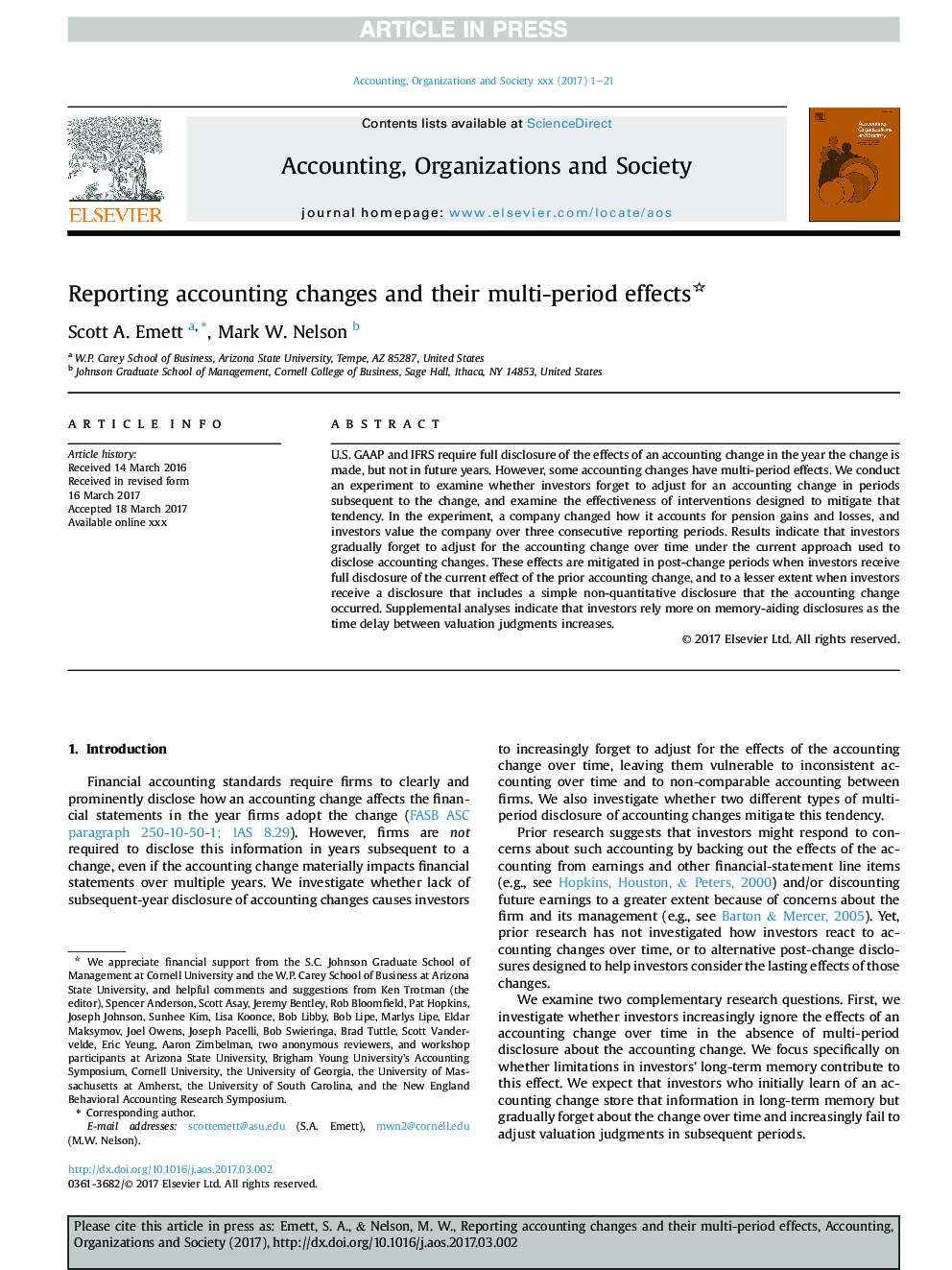| Article ID | Journal | Published Year | Pages | File Type |
|---|---|---|---|---|
| 5033290 | Accounting, Organizations and Society | 2017 | 21 Pages |
Abstract
U.S. GAAP and IFRS require full disclosure of the effects of an accounting change in the year the change is made, but not in future years. However, some accounting changes have multi-period effects. We conduct an experiment to examine whether investors forget to adjust for an accounting change in periods subsequent to the change, and examine the effectiveness of interventions designed to mitigate that tendency. In the experiment, a company changed how it accounts for pension gains and losses, and investors value the company over three consecutive reporting periods. Results indicate that investors gradually forget to adjust for the accounting change over time under the current approach used to disclose accounting changes. These effects are mitigated in post-change periods when investors receive full disclosure of the current effect of the prior accounting change, and to a lesser extent when investors receive a disclosure that includes a simple non-quantitative disclosure that the accounting change occurred. Supplemental analyses indicate that investors rely more on memory-aiding disclosures as the time delay between valuation judgments increases.
Related Topics
Social Sciences and Humanities
Business, Management and Accounting
Accounting
Authors
Scott A. Emett, Mark W. Nelson,
